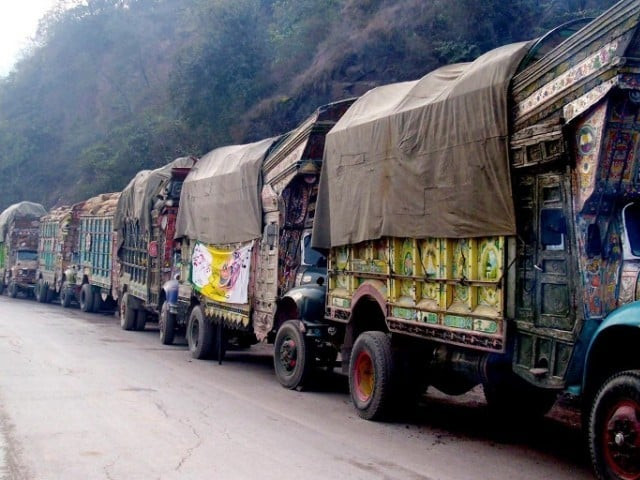Don’t turn it into another Kalabagh
It is in our interest that the trade Corridor is completed in time without letting it become a hub of controversies

The economic corridor is being planned to cover populated and major areas of Pakistan, and consists of energy projects, transportation infrastructure and economic zones. PHOTO: AFP

The economic corridor is being planned to cover populated and major areas of Pakistan, and consists of energy projects, transportation infrastructure and economic zones. The two countries are believed to have also kept the security aspect of the Corridor in mind while planning its route and alignments with various towns and cities of Pakistan. A 10,000-strong special force has been set up to look after the security of the Chinese personnel who would be working on the project.
However, some planning aspects and technicalities associated with the route have been criticised on political forums for varying reasons. A number of voices have expressed apprehensions about the exact route of the Corridor and are demanding clarifications from the federal government. The Khyber-Pakhtunkhwa (K-P) Assembly adopted a resolution against the alleged decision of the federal government to change the route of the proposed multibillion project bypassing the northwestern province. According to the understanding of the K-P government, the original plan was to make the corridor pass through Khunjerab onto Gilgit, Kohistan, Shangla, Battagram, Mansehra, Abbottabad, Haripur, Hassanabdal, Mianwali, D I Khan, Dera Ghazi Khan, Dera Murad Jamali, Khuzdar, Panjgur and it would end in Gwadar. However, if the proposed changes are implemented, D I Khan would be removed altogether and Layyah, Bhakkar and Multan would be added, the critics apprehend.
The K-P Assembly has advised Islamabad to stick to the same route as agreed upon between the governments of Pakistan and China, stating that a change in the route not incorporating K-P would undermine the economic interests of the people of the province. The federal minister of planning and development, Ahsan Iqbal, has formally denied any change in the alignment. Chinese officials have also echoed the same sentiments. In fact, Chinese President Xi Jinping, before leaving Islamabad, assured the people of Pakistan that the project would benefit all parts of the country.
In addition, some local Baloch nationalists seem to be apprehensive that the CPEC would end up denying the locals control over their native resources as outsiders would swarm the region looking for making a quick buck. Other Baloch nationalists view it as a ‘conspiracy’ that would stimulate migration of people from other provinces and make the Baloch a ‘minority’ in their homeland. The federal government would need to discuss this concern with the Baloch leadership from across the board and find ways to reassure the people of Balochistan in this regard. Meanwhile, former president Asif Ali Zardari, in an attempt to muster support for his party’s stance over the perceived lack of transparency with regard to the agreements signed with China, invited most mainstream political parties, including members from the PML-N, for consultation. We find ourselves in complete agreement with the proposal endorsed at the meeting stressing the need for developing consensus on issues of national importance based on transparency and also the need for developing broad-based political ownership of mega economic projects.
Published in The Express Tribune, April 27th, 2015.
Like Opinion & Editorial on Facebook, follow @ETOpEd on Twitter to receive all updates on all our daily pieces.















COMMENTS
Comments are moderated and generally will be posted if they are on-topic and not abusive.
For more information, please see our Comments FAQ